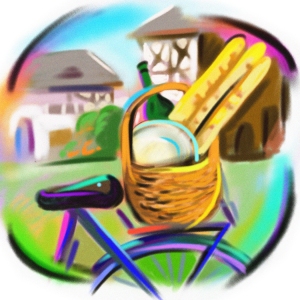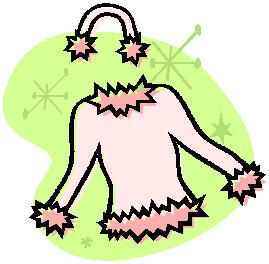Introduction
- Assessing happiness is not so easy.
- We may have little awareness about our own Personal Life Values. We adapt our behaviours to community values. We accept successes based on community values more easily than successes based on personal values.
- We take on community values without our knowledge. We were born into this community. We appear to accept these values with little thought.
- Other communities may have behaviours that appear odd. However, we don’t really know the reason for our opinion beyond the reason that these foreign behaviours differ from the behaviours from within our own community..
- Our assessments are stalled due to our lack of understanding about our own lifestyle.
- We may not understand the limits imposed by Life Boundaries. We are also unaware of the effects of our behaviours on Life Boundaries.
- We may not understand the personal limits of behaviours. We set limits on our own behaviours, but do not understand the reasons for these self-imposed limits.
- Perhaps assessing someones else’s plan may bring some ease into our assessments.
- Developing a brand new lifestyle is difficult. At times, we cannot imagine new or alternative behaviours.
- The reader may find it easier to assess another plan. The assessments may bring out the reader’s true opinions.
- The objective of this article is to encourage the reader to argue both for and against certain behaviours.
- We are encouraging inquiry, research and reflection.
- These opinions may assist the reader to explore new realities and further understand their Current Reality.
|
Go local, go daily, go seasonal Preliminary thoughts
|
Go local, go daily, go seasonal
Preliminary thoughts
- The goal of the reader is to develop lifestyles that fit into New or Perfect Realities.
- The plan given below is a set of routine behaviours.
- The reader assesses each behaviour. Then decides on appropriate behaviours that will fit into their own New and Perfect Realities.
- The behaviours below include behaviours that the reader could consider when assessing different realities.
- This is a brief list of behaviours. However, it is enough to start because the reader has to consider both positive and negative aspects of each behaviour before coming to a conclusion about the behaviour in question.
- In other words, the reader has to consider the reasons to perform the behaviour as well as the reasons not to perform the behaviour. After this assessment the reader has to decide whether performing the behaviour is appropriate or not. The reader can accept, reject or choose alternative behaviours to attain the same goal.
- The behaviours definitely align to External Life Boundaries.
- Living to the rule of the physical environment is a prime objective. Saving on water, low pollution and little destruction of the physical environment, respect for other species, low extra-human energy e.g low use of electricity through either renewable or non-renewable sources.
- Living to the rule of communal living is also another important objective. Living with your neighbours, zero oppression, zero exploitation and zero discrimination of any person that lives on the planet.
- The advantages to personal health, both physically and psychologically, are also clear.
- The focus is on the survival and happiness needs for one’s entire life on the planet.
- Personal Life Values come to the fore: love and respect dominate our deliberations.
- The behaviours below will impact on both local and international issues.
- Locally, you may include issues like environmental impacts, waste production, discriminatory behaviour and communal cohesion.
- Internationally, you may consider the following statements in your assessments:
- The amount of nuclear weapons in the world is based on money from taxation and consumerism.
- The oppression of people in the Middle East is possible with money from petroleum.
- The oppression of Tibetans has grown exponentially due to the increased wealth of China.
- The items you buy and use maintain human rights abuse of fellow citizens?
- The reader’s job is to argue both for and against the behaviours shown below and, then, to justify her/his position.
- Use the information taught in these articles to assist you to form arguments.
- Remember to research and reflect.
- Remember to participate and reflect.
- Above all, remember your cherished values and your Webs of Belief.
- The reader may argue that the ideas are too simple, or too old, or too odd.
- However, these are not good arguments. These reasons show no reason to negate a certain point.
- Some ideas to base your argument include the following:
- Life Boundaries – Physical, Communal and Personal;
- The Impacts of Behaviour – Created Environment, Lifestyle and The Lifestyle Results;
- Direct versus Indirect Behaviours;
- Purpose of Behaviour;
- Second Nature Behaviours and Prisoner Freedom Distractions;
- Behaviour-Motivation, Behaviour-Itself and Behaviour-Consequences;
- Any other argument that the reader deems important.
Go Local
- Work and live in your surrounding district. Keep your destinations near your residence. Defining “near your residence” could be the following: a 30 minute walk; a 30 minute bike ride. Most of your activities should be within a 30-minute bike ride of your residence.
- Vegetable gardens: work in your garden. Recently, some innovative methods of gardening have begun e.g. permaculture. As opposed to modern farming and gardening methods, permaculture mixes all fruits and veggies among the native plants and trees and bugs and animals.
- Washing clothes: hand wash all clothes and linens and hang to dry. If raining, make sure to have a sheltered area near the residence e.g. part of the back verandah can be roofed.
- Toilet: non-water toilets. Perhaps, the community can introduce services to take the dump away and re-use it as manure.
- Housing: do you really need a big house with all those rooms and all those bathrooms and a pool in the back yard?
Go daily
- Go to sleep at night fall…wake up at day break. If you have to stay up, go to bed as early as possible.

- Work near your residence. Take a drink with you… return home and eat lunch and dinner with family and friends. Let the kids see what you do for work. Let them see the role you play in the community…let them join in. Play with them!
- Work to contribute to community goals. Base work on cherished values. Employment does not have to mean “method of gaining a salary” but could mean contribution to community goals! How would this definition affect your vision of your own employment?
- One cooked meal a day. Eat your main meal at lunch. Breakfast and dinner only need to be light. Cook meals using sun reflection technology – there are some great ones around…perhaps limit your cooking. Decrease your need for refrigeration and food storage.
- Shopping: limit shopping…what do you really want to buy? Do you really need restaurants, bakeries and grocery stores? Think of the waste they produce! Work with your neighbors to produce your own food and clothes at or near your home, keep your own animals…humanely slaughter your own animals.Think of the hobbies you could do – spinning wool, knitting, sewing and building things…productive hobbies!
- Fellow citizens. Talk to people…see what they are upto…how can you help them? How can they help you?
Go seasonal
- Wear clothes appropriate to the climate. On cold days and nights wear warm clothing – do not rely on heaters. On hot days and nights wear light clothing – do not rely on air conditioning. On hot nights, try sleeping outside.
- Adjust work to the season. In summer, work early morn and late afternoon so rest in between (siesta time!). In winter, work during the day – start a little late and finish a little early.
- Adjust diets. Prepare for the winter. Dry or salt foods. Stock up on food. Restrict diets to winter items and meat.
- Preparing for the winter can be a great community event… Get together. All age groups can help with this.
This is not an exhaustive list.
- What activities could you add? Why?
- What activities would you change? Why?
- What aspect do you like about the above lifestyle? Don’t like? Why?
One last question:
- How do these behaviours and your responses to the above questions affect your Perfect Web of Belief?
Summary
- Our behaviours impact on both local and international environments and communities as well as our own morality.
- By reigning in our behaviours to within Life Boundaries we can negate some crucial issues in our local and international societies.
- By increasing the number of behaviours that lie within Life Boundaries we can improve the quality of our happiness.
In conclusion, “Go local, go daily, go seasonal”
- Our lifestyle impacts on many walks of life.
- By assessing our behaviours and understanding impacts on Life Boundaries we may positively affect our happiness.
| Perfect Web Step 4: Opinion | What kind of Created Environment is required for you to live your Perfect Reality?
|